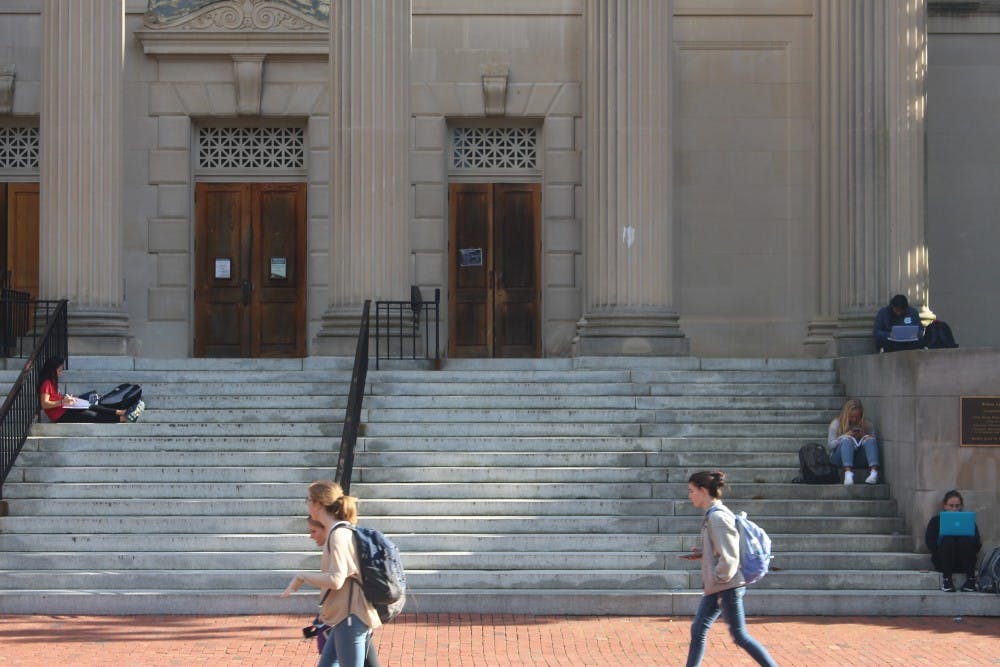As midterm season comes to a close, many students are faced with the harsh reality of one or more unexpectedly low grades. This problem is common for first-year students, especially in their first semester of classes, as they start to adjust to the speed and difficulty of college and all it has to offer.
UNC requires a minimum GPA of 2.000, as well as a completion rate of two-thirds of a student’s attempted credit hours per semester. Students who fail to meet this requirement often find themselves on academic warning, probation or ultimately suspension. Academic warning or probation warrant the completion of an academic intervention plan. Suspension leads to the inability to enroll in classes and a term of engaging in study, work or wellness activities outside of UNC until an appeal can be granted.
First-year biomedical engineering major Frances Reed said she believes academic issues often plague first-years more than other years because they have just begun their time in college.
“I think as UNC students, we all pretty much did really well in high school,” Reed said. “I think coming to UNC we expect to continue uphold this same level of success, but it takes a little time to be stretched academically and reach the level of performance that college requires.”
Academic standing stress is not limited to first-years. Upperclassmen feel the additional pressure of taking harder classes and having less time to lift their grades before graduation.
“I have a much bigger workload with much harder classes as an upperclassman, so my struggles are more based on the actual content,” junior exercise and sports science major Andrei Sergeyev said.
Sergeyev said he often studies hard, but his midterm grades do not always reflect this. He also said as a student who wishes to go to med school, grades are extremely important to him. Even if he is not teetering on the brink of academic failure, the high grade requirements for graduate school may make it feel as though he is.
However, Sergeyev feels first-years are more likely to fail academically.
“I’d wager to say that first-years are probably more prone,” Sergeyev said. “I know coming in, I had literally zero idea on how to succeed in a college course. I had to learn how to study, how to take notes, how to take tests, and that learning curve in itself probably is the same for a lot of people and puts them in an academic hole.”




